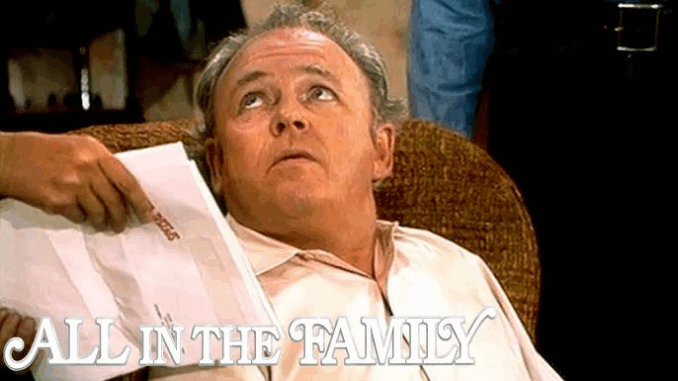
More than half a century after its debut, All in the Family continues to be recognized not just as a groundbreaking sitcom, but as a cultural landmark that forced America to look inward—and laugh along the way.
Premiering in 1971, All in the Family arrived at a time of deep division and unrest. The country was grappling with the Vietnam War, civil rights movements, and a rapidly shifting social landscape. Instead of offering escapism, Norman Lear’s sitcom held up a mirror to American society, placing its tensions at the center of living rooms across the nation.
The brilliance of All in the Family lay in its raw authenticity. Archie Bunker wasn’t a polished TV hero—he was crude, stubborn, and unapologetically bigoted. Yet he was also human. Through Archie, played by Carroll O’Connor with astonishing depth, the series gave a face and voice to a generation struggling to adapt to a world it no longer recognized.
The show didn’t tiptoe around difficult subjects—it tackled them head-on. Whether it was Edith’s assault, Michael’s draft-dodging, or Gloria’s fight for women’s rights, All in the Family broke the mold of family sitcoms that had long avoided controversy. It turned the genre into a platform for public discourse.
What’s remarkable is how the show managed to weave serious commentary into genuine comedy. Audiences laughed, even when the topics made them squirm. In doing so, the series proved that entertainment could also be a force for awareness and change.
All in the Family didn’t just reflect the American experience—it influenced it. Its success signaled to networks that viewers were ready for television that dealt with reality. It gave rise to a wave of socially aware programming and reshaped the industry’s understanding of what a sitcom could be.
Today, as America once again grapples with division and ideological conflict, the legacy of All in the Family feels as relevant as ever. It reminds us that laughter, when used bravely, can be a powerful tool for progress.
